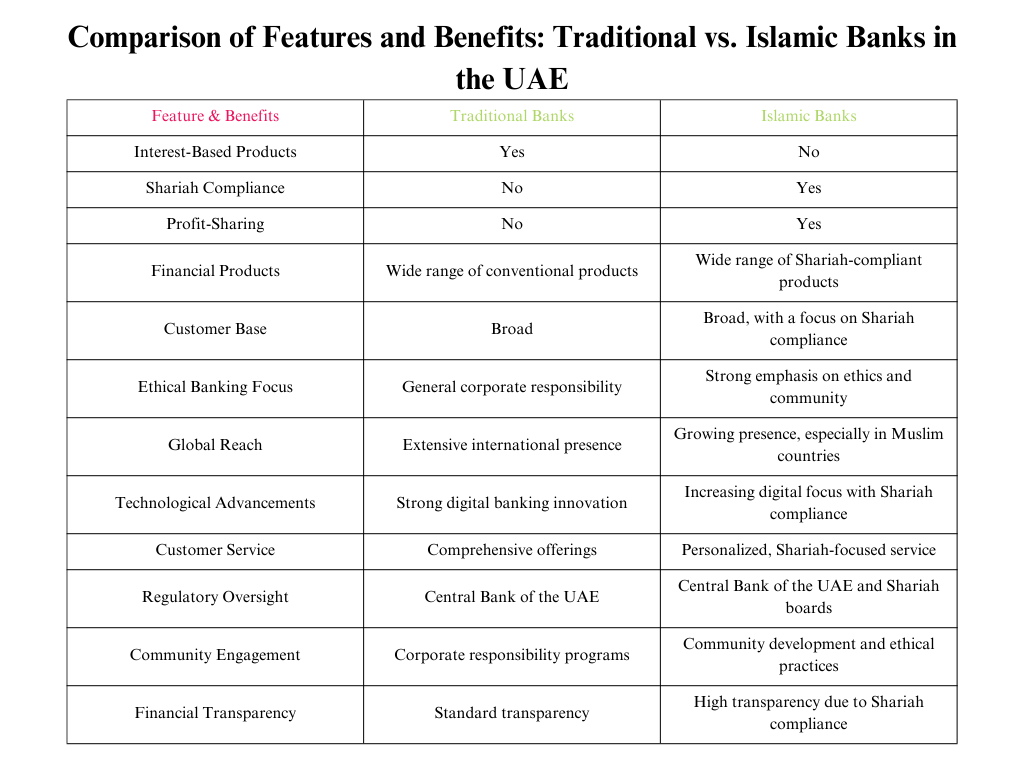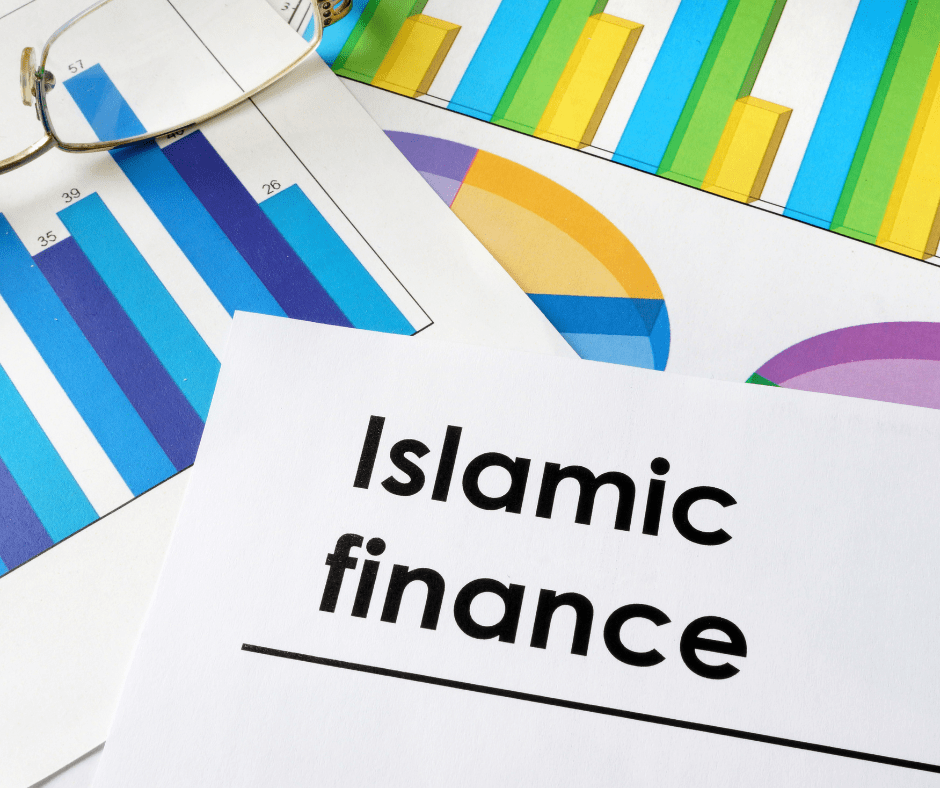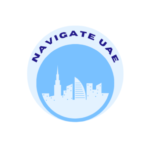The best banks in the UAE are pivotal to economic prosperity and financial stability. This comprehensive guide delves into the top 23 banks that excel in providing exceptional services, innovative solutions, and customer satisfaction. Whether you are an individual seeking reliable personal banking services or a business aiming for robust financial solutions, choosing the right bank is crucial.

Table of Contents
UAE Banking Sector Overview
The banking sector in the UAE is a dynamic and essential component of the nation’s robust economy. Known for its advanced financial infrastructure, the UAE hosts a diverse range of banks, including large national institutions and international banks. The industry is characterized by innovation, regulatory strength, and a commitment to customer service, catering to individuals, SMEs, and large corporations. With its strategic location as a global business hub, the UAE’s banking sector is pivotal in facilitating trade, investment, and economic growth. Offering various services such as retail, corporate, Islamic banking, and wealth management, categorizing UAE banks into traditional and Islamic institutions highlights their versatility in meeting diverse financial needs.
Traditional Banks in the UAE
- Emirates NBD
- Abu Dhabi Commercial Bank (ADCB)
- First Abu Dhabi Bank (FAB)
- Mashreq Bank
- RAKBANK
- National Bank of Fujairah (NBF)
- Commercial Bank of Dubai (CBD)
- Bank of Sharjah
- National Bank of Ras Al Khaimah (RAK Bank)
- Standard Chartered
- Citibank
- HSBC
Islamic Banks in the UAE
- Dubai Islamic Bank (DIB)
- Sharjah Islamic Bank (SIB)
- Abu Dhabi Islamic Bank (ADIB)
- Noor Bank
- Al Hilal Bank
- Emirates Islamic
- Ajman Bank
- Al Masraf Islamic
- United Arab Bank’s (UAB) Islamic Banking
- Commercial Bank of Dubai (CBD) Islamic Banking

Traditional vs. Islamic Banks in the UAE
Here is a comparison of both bank categories.

Factors Considered in Ranking the Banks
When evaluating and ranking the top banks in the UAE, several critical factors were considered to ensure a comprehensive and accurate assessment. Each factor plays a significant role in determining the overall quality and performance of a bank. Here are the key criteria used:
Financial Stability
Financial stability is a crucial factor that reflects a bank’s ability to withstand economic fluctuations and financial crises. It includes:
- Capital Adequacy: The bank’s capital reserves to absorb potential losses.
- Asset Quality: The bank’s loan portfolio and other assets.
- Liquidity: The bank’s ability to meet its short-term obligations.
- Profitability: The bank’s ability to generate consistent profits.
Customer Service
Customer service is a vital aspect of banking, as it directly impacts customer satisfaction and loyalty. This includes:
- responsiveness: how quickly and effectively the bank responds to customer inquiries and issues.
- Professionalism: the knowledge, courtesy, and professionalism of the bank’s staff.
- Support Channels: Availability of various support channels such as phone, email, chat, and in-person assistance.
Range of Services Offered
The range of services offered indicates the bank’s ability to cater to diverse customer needs. This includes:
- Personal Banking: savings accounts, current accounts, loans, credit cards.
- Corporate Banking: Business accounts, commercial loans, trade finance.
- Wealth Management: Investment solutions, financial planning, advisory services.
- Specialized Services: Islamic banking, digital banking solutions.
Technological Innovations
Technological innovations reflect the bank’s commitment to staying current with digital advancements and providing modern banking solutions. This includes:
- Digital Banking Platforms: Quality and functionality of mobile apps and online banking platforms.
- Innovative Products: Introduction of new and unique financial products and services.
- Security: Advanced security measures to protect customer data and transactions.
Accessibility and Branch Network
Accessibility and branch network indicate how easy it is for customers to access the bank’s services. This includes:
- Branch Locations: Number and distribution of branches across the UAE.
- ATM Network: Availability and convenience of ATMs.
- Online Presence: Availability of online services and digital channels for banking.
Interest Rates and Fees
Interest rates and fees are critical factors that affect the cost-effectiveness of banking with a particular institution. This includes:
- Interest Rates: competitive rates on savings accounts, loans, and other financial products.
- Fees: Transparency and reasonableness of fees for various services, such as account maintenance, transactions, and overdrafts.
Customer Reviews and Satisfaction
Customer reviews and satisfaction provide insights into the real-world experiences of the bank’s clients. This includes:
- Online Reviews: Feedback and ratings from customers on platforms like Google, Yelp, and banking forums.
- Surveys: results from customer satisfaction surveys conducted by the bank or independent entities.
- Loyalty: indicators of customer loyalty, such as retention rates and repeat business.
By considering these factors, we can provide a well-rounded evaluation of the top banks in the UAE, helping individuals and businesses make informed decisions about their banking needs.
13 Essential Types of Bank Accounts in the UAE

10 Benefits of UAE Banks
- Financial Stability
UAE banks are known for their robust financial health, characterized by strong capital reserves, high asset quality, and prudent risk management practices. This stability ensures that depositors’ funds are secure and the banks can withstand economic fluctuations. - Wide Range of Services
Banks in the UAE offer a comprehensive range of services to cater to the diverse needs of individuals and businesses. These services include personal banking, corporate banking, wealth management, Islamic banking, and digital banking solutions. - innovative digital banking
UAE banks are at the forefront of digital innovation, providing customers with advanced online and mobile banking platforms. These platforms offer convenience and ease of access, allowing customers to manage their finances anytime and anywhere. - Islamic Banking Options
For customers seeking Shariah-compliant financial products, many UAE banks offer a wide array of Islamic banking services. These include Islamic savings accounts, loans, investment options, and insurance, all adhering to Islamic principles. - Customer Service Excellence
UAE banks place a strong emphasis on customer service, striving to provide exceptional support through various channels such as phone, email, chat, and in-person assistance. This focus on customer satisfaction helps build trust and loyalty. - Competitive Interest Rates
Banks in the UAE offer competitive interest rates on savings accounts, fixed deposits, and loans. This ensures that customers can maximize their returns on investments and minimize their borrowing costs. - Extensive Branch and ATM Network
The extensive network of branches and ATMs across the UAE provides customers with easy access to banking services. This widespread availability ensures that customers can perform their banking transactions conveniently, regardless of their location. - Personalized Wealth Management
UAE banks offer tailored wealth management services to help individuals and families achieve their financial goals. These services include investment advisory, portfolio management, and financial planning, catering to the unique needs of high-net-worth clients. - Business Support
For businesses, UAE banks provide a range of specialized services such as trade finance, business loans, cash management solutions, and corporate advisory services. These offerings support the growth and expansion of businesses in various industries. - Strong Regulatory Framework
The UAE banking sector operates under a stringent regulatory framework, ensuring transparency, accountability, and adherence to best practices. This regulatory environment fosters confidence among customers and investors, contributing to the overall stability and integrity of the banking system.
10 Disadvantages of UAE Banks
- High ChargesSome customers find that UAE banks impose relatively high fees for various services, such as account maintenance, overdrafts, and international transfers. These fees can add up, making banking more expensive for both individuals and businesses.
- Complex Account Opening Procedures
Opening an account at a UAE bank can be a complex and time-consuming process, especially for expatriates. The extensive documentation and verification requirements can be cumbersome for new customers. - Limited Interest on Savings
Compared to other regions, the interest rates offered on savings accounts at UAE banks can be relatively low. This means customers may earn less on their deposits compared to banks in other countries. - Inconsistent Customer Service
While many UAE banks strive for excellent customer service, there can be inconsistencies in the quality of service provided. Some customers report long wait times, unresponsive support, or lack of resolution for their issues. - Language Barriers
Although English is widely spoken in the UAE, language barriers can still exist, particularly for non-English-speaking customers or those dealing with local banks where Arabic is predominantly used. - Stringent Lending Criteria UAE banks often have strict lending criteria, making it difficult for some individuals and small businesses to qualify for loans. High eligibility requirements and extensive documentation can be barriers to accessing credit.
- Limited Branch Availability in Remote Areas
While banks have extensive networks in urban areas, branch availability in remote or rural regions can be limited. This can pose a challenge for customers who prefer in-person banking services. - Slow Digital Adoption in Some Banks
Despite overall advancements in digital banking, some UAE banks are slower to adopt new technologies. This can result in outdated online banking platforms and limited digital services compared to more technologically advanced banks. - Regulatory and Compliance Hurdles
The stringent regulatory environment, while beneficial for stability, can also create compliance challenges for customers and businesses. Navigating these regulations can be time-consuming and complex. - Privacy Concerns
Some customers have expressed concerns about the privacy of their data and the security of their personal information. While banks implement robust security measures, the risk of data breaches and cyberthreats remains a concern.

1. Emirates NBb
Emirates NBD is a leading banking group in the Middle East, North Africa, and the wider region. With a strong presence in the UAE, the bank offers a comprehensive range of financial products and services to individuals, businesses, and institutions. Known for its innovative approach and customer-centric philosophy, Emirates NBD has established itself as a major player in the UAE’s banking sector.
2. Abu Dhabi Commercial Bank (ADCB)
This bank is a prominent banking institution in the United Arab Emirates, offering a wide array of financial products and services. With a strong focus on corporate and retail banking, ADCB caters to the diverse needs of its customers. The bank has a significant presence in the UAE and has been instrumental in the country’s economic growth.
3. First Abu Dhabi Bank (FAB)
The First Abu Dhabi Bank (FAB) is the largest banking group in the UAE and one of the biggest in the Middle East. Formed through the merger of First Gulf Bank and National Bank of Abu Dhabi, FAB offers a comprehensive range of banking and financial services. With a strong focus on innovation and customer satisfaction, the bank has established itself as a leading financial institution in the region.
4. Mashreq Bank
Mashreq Bank is a leading financial institution in the UAE with a strong regional presence. Known for its innovative banking solutions and customer-centric approach, Mashreq offers a wide range of products and services to individuals, corporations, and institutions. The bank has been at the forefront of digital transformation in the UAE banking sector.
5.RAKBANK
RAKBANK, the National Bank of Ras Al Khaimah, is a leading bank in the UAE with a strong focus on retail and commercial banking. The bank offers a wide range of financial products and services to individuals, businesses, and institutions. Rakbank has a significant presence in the Northern Emirates and has been contributing to the economic growth of the region.
6. National Bank of Fujairah (NBF)
The National Bank of Fujairah (NBF) is a prominent bank based in Fujairah, UAE. The bank offers a comprehensive range of banking services to individuals, businesses, and institutions. NBF has been actively contributing to the economic development of Fujairah and the UAE as a whole.
7. Commercial Bank of Dubai (CBD)
The Commercial Bank of Dubai (CBD) is a well-established bank with a strong presence in the UAE. The bank offers a wide range of financial products and services to individuals, businesses, and institutions. CBD has been a key player in the Dubai economy and has contributed significantly to its growth.
8. RAKBANK (National Bank of Ras Al Khaimah)
The National Bank of Ras Al Khaimah is a leading financial institution based in the Emirate of Ras Al Khaimah, UAE. Established in 1976, the bank has evolved into a dynamic player in the UAE’s banking sector, offering a comprehensive range of retail, commercial, and Islamic banking services. With a strong focus on innovation and customer satisfaction, RAKBANK has solidified its position as a key contributor to the economic growth of Ras Al Khaimah and the UAE.
9. National Bank of Fujairah (NBF)
A cornerstone of Fujairah’s financial landscape, the National Bank of Fujairah (NBF) has been a driving force in the emirate’s economic growth. Established in 1982, the bank has evolved into a comprehensive financial services provider, catering to both individuals and businesses. NBF’s commitment to innovation and customer satisfaction has solidified its position as a trusted partner in the region.
10. Standard Chartered
A global financial powerhouse, Standard Chartered has established a strong foothold in the UAE. With a vast international network and deep-rooted local expertise, the bank offers a comprehensive suite of financial solutions to individuals, businesses, and institutions. Standard Chartered has been instrumental in driving economic growth and facilitating trade in the region.
11. Citibank: A Global Financial Institution in the UAE
This bank, a leading global financial services provider, has been a prominent player in the UAE’s banking landscape for decades. Renowned for its extensive global network and innovative financial solutions, Citibank caters to a diverse clientele, including individuals, corporations, and institutions. With a strong emphasis on technology and customer experience, the bank has consistently adapted to the evolving needs of the market.
12. HSBC: A Global Financial Powerhouse in the UAE
With a rich history dating back to 1946, the bank has been instrumental in shaping the nation’s financial landscape. HSBC offers a comprehensive suite of banking solutions, catering to individuals, businesses, and institutions alike. Its global network and deep local expertise position it as a trusted partner for clients seeking to navigate the complexities of the global economy.
13. Abu Dhabi Islamic Bank (ADIB)
It is a global leader in Islamic banking, renowned for its comprehensive suite of Shariah-compliant financial solutions. With a strong international presence, it offers a wide range of products and services to individuals, corporations, and institutions, solidifying its position as a key player in the global Islamic finance industry.
14. Sharjah Islamic Bank (SIB)
Sharjah Islamic Bank (SIB) is a prominent Islamic banking institution based in Sharjah, United Arab Emirates. Established in 1976 as the National Bank of Sharjah, it underwent a significant transformation in 2004 to become a fully Shariah-compliant bank. SIB offers a comprehensive range of Islamic financial products and services to individuals, corporations, and institutions, contributing significantly to the growth of the Islamic banking sector in the UAE.
15. Dubai Islamic Bank (DIB)
A pioneer in Islamic banking, Dubai Islamic Bank (DIB) has been at the forefront of the industry’s growth and development in the UAE. Established in 1975, DIB has expanded its operations significantly to become a leading Islamic financial institution globally. The bank offers a comprehensive range of Shariah-compliant products and services, catering to both retail and corporate customers. DIB’s commitment to innovation and its customer-centric approach have solidified its position as a trusted financial partner.
16. Emirates Islamic
As a subsidiary of Emirates NBD, it provides a comprehensive range of Islamic banking solutions tailored to the needs of its customers. With a strong focus on retail and corporate banking, it leverages its parent company’s extensive network and resources to deliver exceptional financial services.
17. Al Hilal Bank
This bank offers a wide array of Shariah-compliant products and services to individuals and businesses. With a customer-centric approach, the bank strives to provide innovative financial solutions that meet the evolving needs of its customers.
18. Ajman Bank
This is a mid-sized Islamic bank based in Ajman, UAE. It offers a comprehensive range of Shariah-compliant banking products and services to both individuals and corporations. The bank focuses on providing personalized solutions and building strong relationships with its customers.
20. Noor Bank
This is a relatively new entrant to the Islamic banking market, with a strong emphasis on digital banking and innovation. It offers a range of Shariah-compliant products and services delivered through a seamless digital platform, catering to the needs of the tech-savvy customer.
21. Al Masraf Islamic Banking
This bank offers a comprehensive range of Islamic banking products and services to cater to the diverse needs of its customers. Committed to adhering to Shariah principles, the bank provides a trusted platform for individuals and businesses seeking ethical and transparent financial solutions. With a focus on innovation and customer satisfaction, Al Masraf’s Islamic banking division strives to meet the evolving needs of the market.
22. United Arab Bank’s (UAB) Islamic Banking
UAB’s Islamic Banking Division offers a comprehensive suite of Shariah-compliant financial solutions tailored to meet the diverse needs of individuals and businesses. Committed to upholding Islamic principles, UAB provides a trusted banking platform for customers seeking ethical and transparent financial services.
23. Commercial Bank of Dubai (CBD)
Attijari Al Islami, the Islamic banking division of the Commercial Bank of Dubai (CBD), offers a comprehensive range of Shariah-compliant financial solutions. Committed to providing ethical banking services, Attijari Al Islami caters to individuals and businesses seeking to align their financial goals with Islamic principles. With a strong focus on customer satisfaction, the bank delivers innovative products and services that meet the evolving needs of its customers.
UAE Banking Sector Regulations
The banking sector in the UAE is underpinned by a dynamic and evolving regulatory framework designed to enhance stability, transparency, and customer protection. The UAE Central Bank, along with other regulatory bodies, plays a pivotal role in shaping the landscape of banking regulations. Over the years, several key regulatory developments have been introduced to address emerging challenges and align with global best practices.
Key Regulatory Developments
Key regulatory developments in the UAE banking sector are crucial for maintaining financial stability and promoting growth. Here’s a summary of some recent and significant developments:
- Implementation of Basel III Standards: The UAE Central Bank has been aligning its regulations with the Basel III framework to enhance the resilience of banks. This includes stricter capital requirements, liquidity standards, and leverage ratios to ensure that banks can withstand financial shocks.
- Anti-Money Laundering (AML) and Combating the Financing of Terrorism (CFT): The UAE has introduced stringent AML/CFT regulations to strengthen the banking sector’s defenses against illicit financial activities. The Central Bank has issued guidelines and conducted inspections to ensure compliance.
- Digital Transformation and FinTech Regulation: To foster innovation, the UAE Central Bank has introduced regulatory frameworks to support the growth of digital banking and fintech. This includes the issuance of digital banking licenses and guidelines for the use of blockchain and cryptocurrency within the financial system.
- Data Protection and Privacy Regulations: The UAE has implemented data protection regulations that align with global standards, such as the General Data Protection Regulation (GDPR). Banks are required to ensure the confidentiality and security of customer data, with strict penalties for breaches.
- Sustainable Finance Initiatives: The UAE has launched various initiatives to promote sustainable finance, including the introduction of green finance guidelines. Banks are encouraged to fund projects that contribute to environmental sustainability, aligning with the UAE’s commitment to reducing its carbon footprint.
- Islamic Banking Regulations: The UAE continues to develop its regulatory framework for Islamic banking, ensuring that it complies with Shariah principles. This includes standardizing practices across Islamic financial institutions and promoting transparency.
- Prudential Regulations and Stress Testing: The Central Bank has enhanced prudential regulations, including regular stress testing of banks to assess their ability to cope with economic downturns. This helps identify vulnerabilities and ensure the robustness of the banking sector.
- Consumer Protection Regulations: The UAE has introduced stronger consumer protection laws within the banking sector. This includes guidelines on fair treatment of customers, transparency in financial products, and the handling of customer complaints.
Conclusion
The UAE boasts a robust and dynamic banking sector, offering a wide range of financial services to both individuals and businesses. This blog explored 23 of the best banks in the UAE, highlighting their strengths, offerings, and contributions to the nation’s economy. By carefully considering factors such as financial stability, customer service, product range, and digital innovation, individuals and businesses can select the bank that best aligns with their financial goals.


